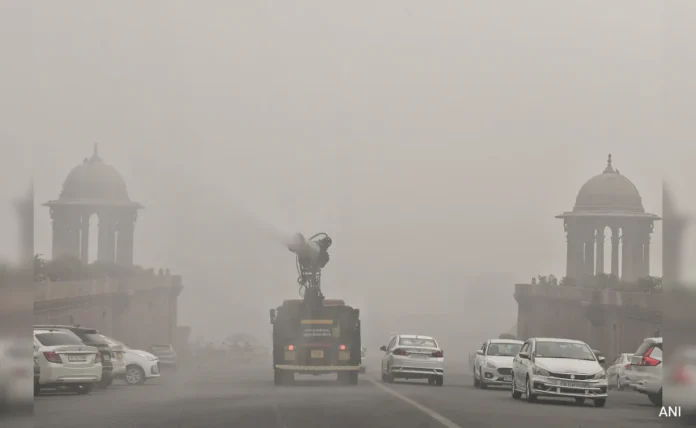Delhi-NCR Enforces Stage 3 GRAP Restrictions Due to Deteriorating Air Quality
As Delhi-NCR continues to grapple with severe air quality levels, the Centre’s Commission for Air Quality Management (CAQM) has activated Stage 3 of the Graded Response Action Plan (GRAP) to address the region’s worsening pollution. This decision comes after the air quality index (AQI) surged to 365 by 4 p.m. on January 29, 2025, signalling a significant deterioration in atmospheric conditions due to an alarming mix of weather patterns and pollution sources. The decision to invoke Stage 3 restrictions underscores the gravity of the situation, with the region’s air quality entering the “severe” category.
Stage 3 of the GRAP, which is triggered when AQI reaches the 401-450 range, introduces several stringent measures to mitigate the impact of hazardous air quality. These include a ban on non-essential construction activities, which have long been a significant contributor to particulate matter in the air. Additionally, schools up to grade 5 are required to switch to hybrid learning modes, with parents and students given the option to opt for online education wherever possible. This shift aims to reduce the exposure of young children to the hazardous outdoor air, which poses serious respiratory risks.
Another critical aspect of Stage 3 is the restriction placed on certain vehicles, including BS-III petrol and BS-IV diesel cars in Delhi and surrounding NCR districts. This restriction also extends to non-essential diesel-operated medium goods vehicles with older emission standards. Notably, individuals with disabilities are exempt from these restrictions, recognising their specific mobility needs. While the restrictions are a necessary step towards curbing pollution, they also serve as a reminder of the long-standing challenges Delhi faces in balancing urban mobility with air quality concerns. The environmental toll of unchecked vehicular emissions, along with other local sources of pollution, continues to exacerbate the city’s air quality crisis.
The root causes of the severe air pollution in Delhi are manifold. Unfavourable meteorological conditions—calm winds, smog, and low mixing heights—trap pollutants close to the ground, significantly reducing air quality. These conditions, combined with seasonal contributors such as paddy-straw burning, firecrackers, and vehicle emissions, result in a hazardous mix that significantly impacts public health. The air quality issues during the winter months have become a recurring problem, with each year bringing about similar public health and environmental concerns. The implications for public health are particularly severe, as the persistent pollution puts millions at risk of respiratory illnesses, cardiovascular diseases, and other long-term health complications.
From a sustainability perspective, the situation in Delhi-NCR calls attention to the urgent need for comprehensive environmental policies that go beyond reactive measures like GRAP. The reliance on heavy vehicular traffic, coupled with the ongoing burning of crop residues, highlights the need for more sustainable farming practices and alternative energy solutions in the transportation sector. Delhi’s pollution crisis illustrates a broader issue of urban sustainability—how cities manage air quality in the face of rapid urbanisation, increasing vehicle ownership, and industrialisation. To effectively address these challenges, there needs to be a long-term commitment to cleaner technologies, better public transportation infrastructure, and more rigorous enforcement of environmental regulations.
As GRAP Stage 3 restrictions unfold, it’s clear that tackling Delhi’s air pollution problem requires a multi-faceted approach, integrating immediate solutions with long-term strategic planning to mitigate environmental impact and safeguard public health.



